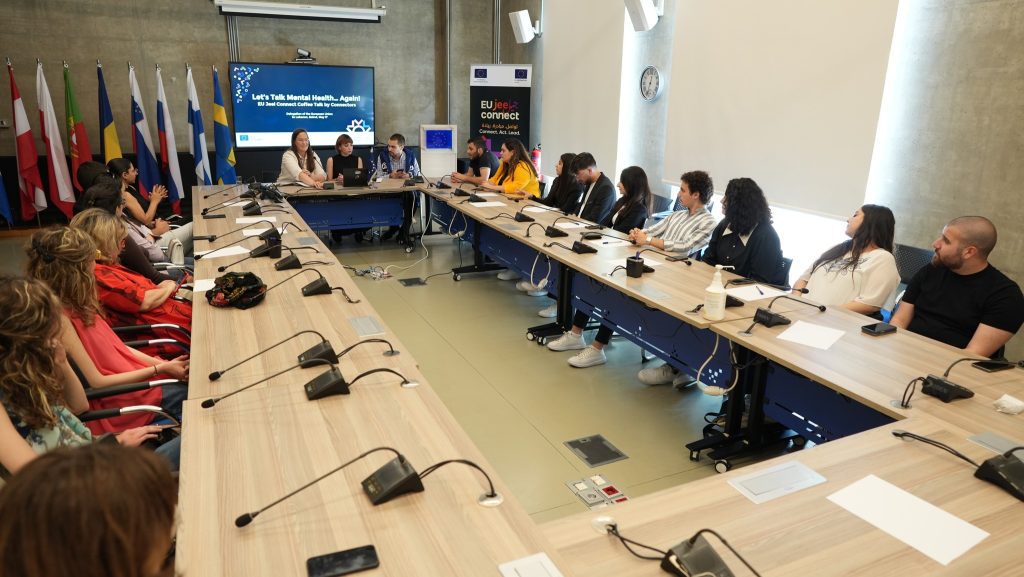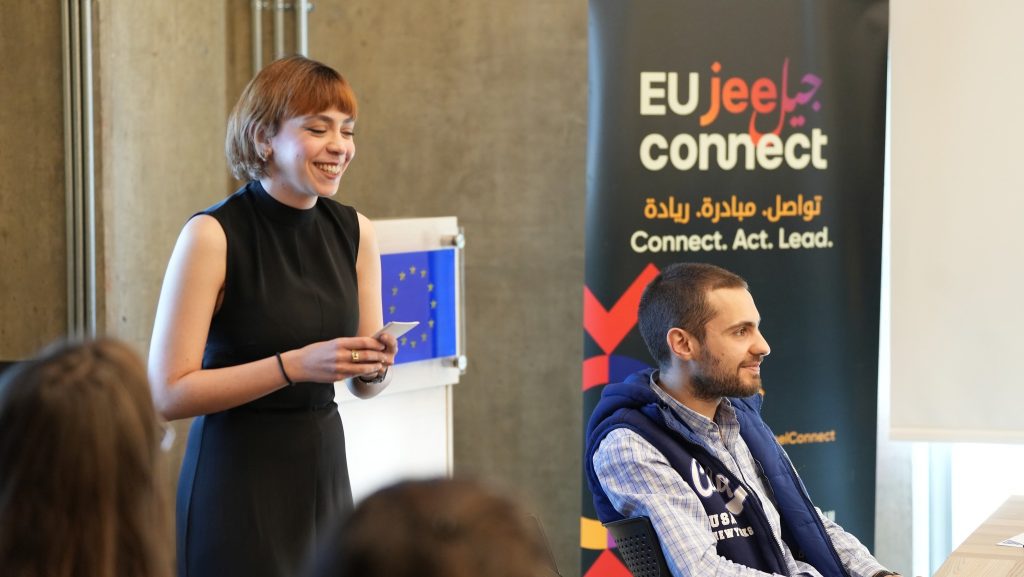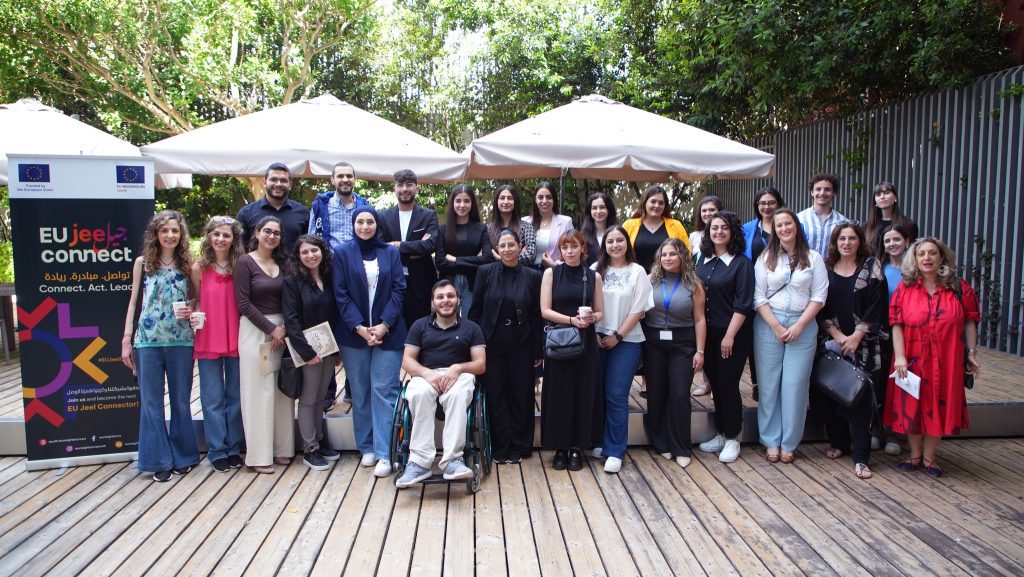Coffee Talk By Connectors in Beirut on the Importance of Mental Health
As part of the EU’s Jeel Connect initiative, a Coffee Talk was organised in Lebanon to address the impact of the ongoing economic crisis on the mental health of Lebanese youth. The European Union Delegation to Lebanon brought together young people from across the country for a Coffee Talk Connectors entitled “Let’s talk mental health again” at the EU Delegation’s headquarters in Beirut. The event, which was also attended by EU partners in Lebanon, was moderated by two EU Jeel Connectors who also presented their own projects.

Inspiring Youth Initiatives and Aspirations
Rayan Mahfouz, 29, an economics graduate, presented his initiative called Shooting Star Academy. Rayan, who dreamed of becoming a professional athlete in his youth, has launched this initiative to encourage young people to play sports, especially those who suffer from a physical disability. He says that “physical inactivity is the fourth leading cause of death worldwide. Sport also plays an important role in individual well-being”.
Fabienne Semaan, 24 years old, is the co-founder and project manager of Recover. “I come from Zgharta, a village in northern Lebanon, where it is still taboo to talk about mental health, even though the need is there, especially among young people. By founding Recover, I wanted to give hope,” she explains. Fabienne and her team, which has just received funding from the Swiss NGO Hivos, work with the most marginalised population groups, including the LGBT community and refugees.

NGOs Highlight Growing Mental Health Issues Among Lebanese Youth
Maria Haddad is the head of the Mental Health and Psychosocial Support Service (MHPSS) at the non-governmental organisation International Medical Corps (IMC), which supports various population groups in Lebanon. “More and more young people are suffering from mental disorders, especially depression and burnout. Cases of self-harm are also on the rise. Lebanon is not only suffering from the after-effects of the COVID-19 lockdown, but also from the economic crisis, which has played a crucial role in the despair of the younger generations. Many of the Lebanese youth are desperate and lack hope and ambition,” she says.
Nour Beaini, project coordinator at Embrace, a local non-governmental organisation that has set up a 24-hour hotline to help people cope with mental health issues, also underlines this idea. “The economic crisis has exacerbated people’s despair. We are receiving more and more calls from young people between the ages of 15 and 24,” she says. “To reach this part of the population and raise awareness about mental health and suicide, Embrace has launched a joint project with various stakeholders, including UNICEF. We work with schools, universities and communities,” she explains. “In 2023, our hotline received 11,000 calls, with 30% of callers aged between 15 and 24,” she adds.
IMC andEmbrace are among the NGOs working with the European Union in Lebanon to implement mental health projects.

EU Engagement and Support for Mental Health Initiatives in Lebanon
Orla Colclough from the Cooperation, Governance and Social Services Department at the Delegation of the European Union to Lebanon focused on the mental health of young people. “This is an issue that should be addressed. We are increasingly seeing the need in this area,” she says, noting that “in recent years, 280 million euros have been channelled into the health sector in Lebanon, benefiting more than 2 million people.”
Orla Colclough also answered questions from the young people who attended the meeting. They asked questions about mental health, like Yara and Maya Mahfouz, nutritional sciences students at Saint Joseph University. The twin sisters wanted to explore the possibilities of EU-funded academic research on mental health.
Discussions centred primarily on areas of collaboration with the European Union. The youth in attendance hope and aspire to become the next EU Jeel Connectors. Christian Abou Daher, an 18-year-old, says: “I would love to have the opportunity to become an EU Jeel Connector. This will open doors for me and allow me to get to know the European Union better and carry out projects that are useful for society.



























 Syria
Syria 


